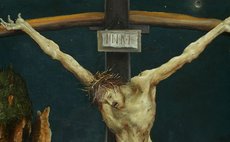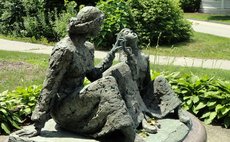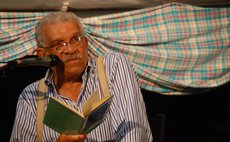The literary man
Literature is an invitation to enter into the light and dark, the faith and doubt, the joys and sorrows, the aspirations and losses that comprise the human experience.
Dr. Jennifer Rahim
A literary man is one who has understood the immense value of literature. It manifests itself in his speech and even in his whole attitude to life. He has learnt to grasp the springs of human progression and the agony of human floundering. He has captured the pain of sorrow and the ecstasy of joy. Not only does he indulge in extensive reading but he also exercises literary creativity. He endeavours to leave "footprints on the sands of time."
One unfortunate development in the post-modern world is that learning has tended to be compartmentalized. This age is one of specialization. Few there are who have a comprehensive education. Most learned men and women have only one field of erudition. A medical doctor is usually nothing more than a medical practitioner. A lawyer is often nothing more than a legal attorney. An agriculturist usually has little knowledge beyond his agricultural expertise. An artist would not be expected to have probed into centuries of history.
Some years ago, a certain gentleman, when asked in court what was his occupation, replied that he was a politician. One got the impression that outside the domain of party politics, he was not good for anything else. A businessman would hardly be expected to be a student of physics at the level of people like Albert Einstein. A music enthusiast would most likely not be a mechanical engineer.
There have, however, been outstanding exceptions. John Keats, an English surgeon, wrote poems. He eventually abandoned surgery to devote himself to writing poetry. Indeed, he has written some of the most beautiful poems in English Literature. Aleksandr L. Solzhenitsyn, born in Russia in 1918, obtained a degree in Mathematics and Physics. He studied Literature. He wrote several literary works. He published 'The Gulag Archipelago,' which has been described as the best non-fiction publication of the 20th century. In 1970 Solzhenitsyn received the Nobel Prize in Literature.
At the Dominica Grammar School, in the 1950's, Mr. Victor A. Archer was a headmaster who made a tremendous impression on his students. He was a firm disciplinarian. But what was more important was that he was a man with a vast erudition. Although he was a scientist, he loved Literature. He taught Chemistry as well as Shakespeare and Charles Dickens. He sometimes found it possible to make a literary quotation while teaching Chemistry. A truly colossal mind!
Mr. Franklyn Baron, now in the twilight of his years, has been well known as a politician and a businessman. Indeed, he has distinguished himself in both areas. But few people do know that he has truly been a literary scholar. He could publish a book of the many articles he has written in his lifetime.
In the 1960's and 1970's, Frank Baron had a most interesting and informative column in THE DOMINICA CHRONICLE, entitled, 'Frankly Speaking'. He also published regularly a play in 'THE HERALD', 'Through the Grapevine'. Those who are old enough will remember the characters, DeWitte, Long John, Sir Colds, Buffy.
The authorship of 'Nabes and I', has never been revealed, as far as I know. But there is no doubt that Frank Baron was closely associated with it. In fact, based on the literary style, allusions and quotations made, I have no hesitation in affirming that, in the first few years of its publication, he was responsible for at least the final redaction of 'Nabes and I'.
Frank Baron is a well-read man. This has been very evident in his literary style. He quoted from Shakespeare with an ease which is not common today. On one occasion, after Mr. W.S. Stevens, Minister of Education in the Labour Party Government of Premier Edward Leblanc, had made a certain statement, Frank Baron issued a harsh comment in 'THE DOMINICA CHRONICLE':
A lie! A lie! 'Pon my word, a wicked lie!
Dr. Irving André, a jurist, now an eminent judge in Canada, has published several inspiring works. I daresay that he is well on his way to obtaining an international award in Literature.
A literary man or woman is one who has understood the power of language in expressing and communicating the mysteries of life. This is a person who has endeavoured to seek meaning in life and communicate it to others. A literary man or woman understands that there is a common bond running through all humanity. There is the recognition that language is a thread that links the various strands of that bond and he endeavours to capitalize on it. Any person who lacks a basic knowledge of Literature cannot be considered to be educated. We are about to enter upon the annual summer vacation for our schools. It is my fervent hope that our students will make more use of our libraries to further their literary knowledge. In the relaxed frame of mind that is furnished by vacation, students are better able to read leisurely and reflectively. This is most essential for the proper development of the human person.




